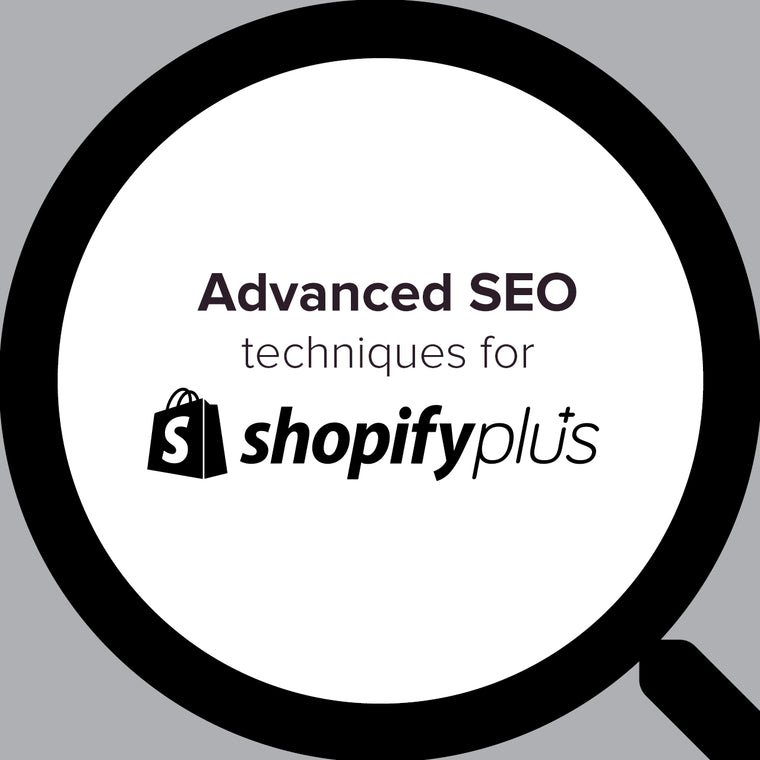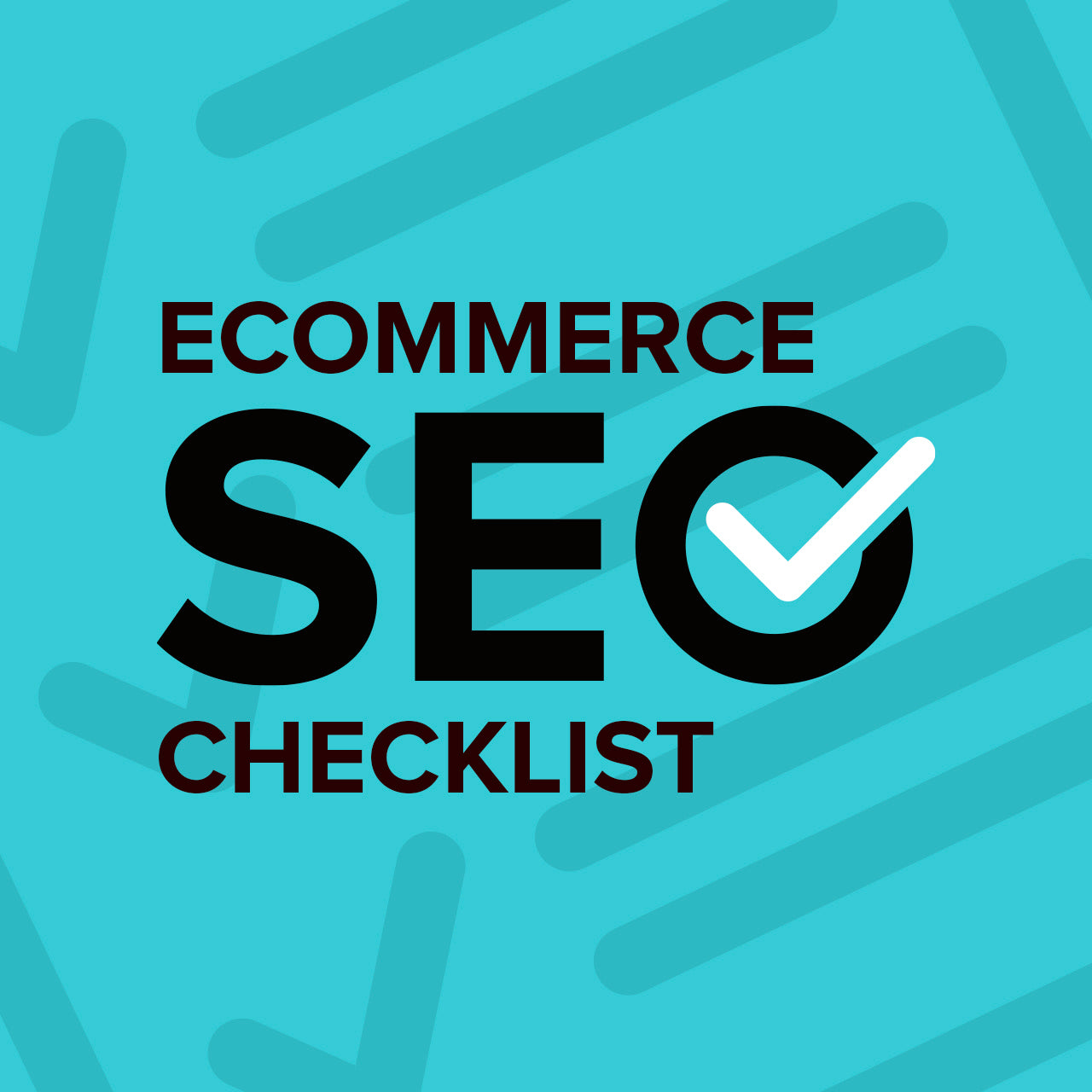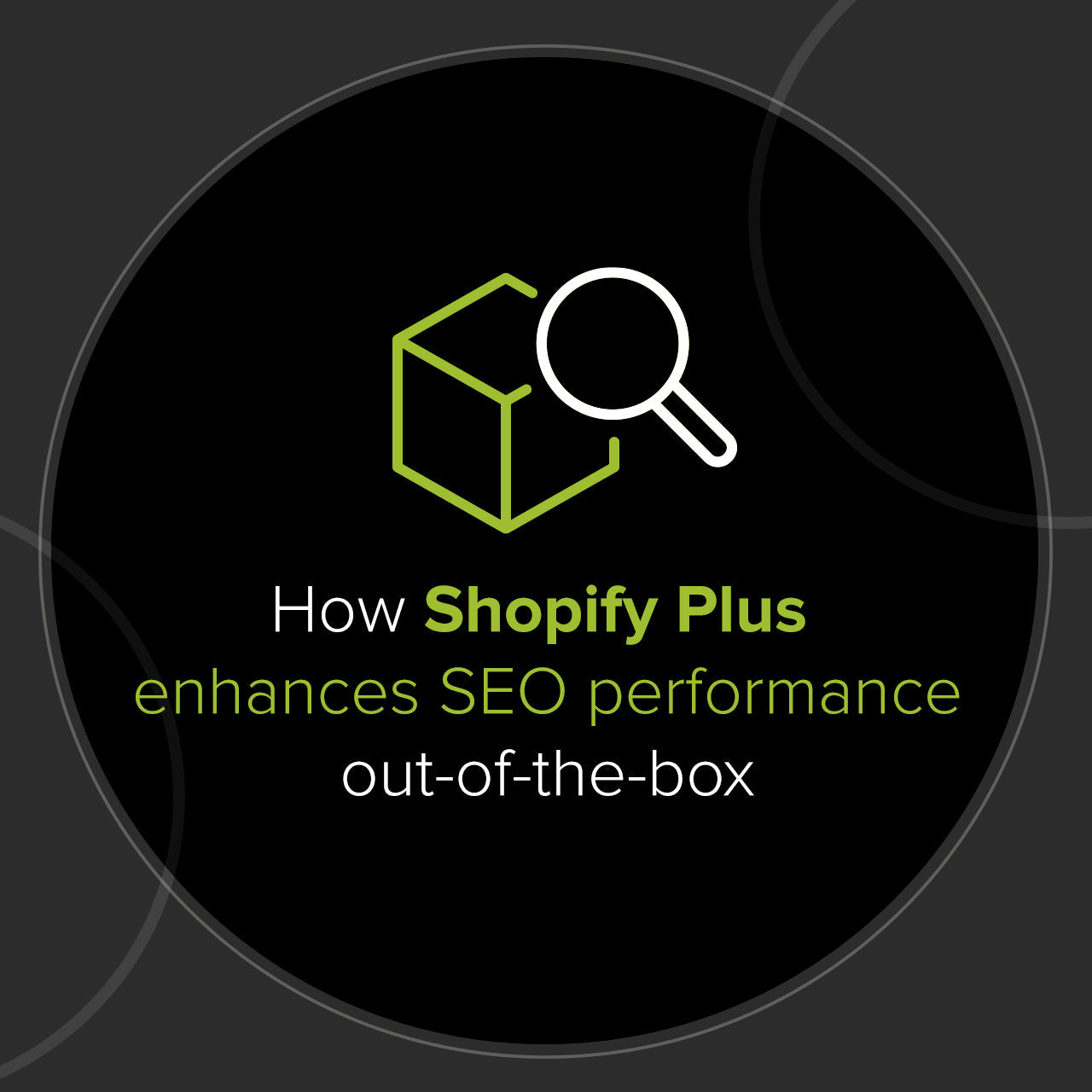Advanced SEO Techniques for Your Shopify Plus Store
Learn the tactics to make search engines love your store.

Tired of confusing SEO jargon and conflicting advice? Cut through the noise with our clear, actionable guide to advanced SEO for Shopify Plus. Learn the proven techniques that will make your store shine online.
In the competitive world of eCommerce, ranking high in search engine results pages (SERPs) is crucial for attracting organic traffic, boosting sales, and establishing brand awareness. This is where Search Engine Optimisation (SEO) comes into play. For Shopify Plus stores, with their vast product catalogues and complex functionalities, implementing effective SEO strategies is essential for achieving sustainable growth.
So, what exactly is SEO, and why should Shopify Plus stores prioritise it?
SEO is the art and science of optimising your online store to rank higher in search engine results. When done well, it helps potential customers find your store organically when they search for products or topics related to your business.
Importance of SEO for Shopify Plus stores:
- Increased Organic Traffic: Strong SEO drives more relevant visitors to your store, without the need to pay directly for ads on every click.
- Higher Conversion Rates: Traffic from search engines is typically highly targeted - these people are already looking for what you sell, making them more likely to convert.
- Enhanced Brand Awareness: Appearing prominently in search results builds credibility and trust in your brand's name.
- Long-term, Sustainable Success: While SEO takes time, it's an investment that pays off with a reliable source of leads and sales over time.
Keyword Research and Optimisation
The bedrock of successful SEO is understanding what your target audience is searching for. In-depth keyword research is the process of finding these important terms and phrases. Here's how Shopify Plus stores can master this:
Finding Relevant Keywords
Use a combination of tools (like Google Keyword Planner, SEMrush, Ahrefs, or others) to identify keywords relevant to your products, industry, and target customers.
Long-tail vs. Short-tail
Short-tail keywords are broad, high-volume terms (e.g., "women's shoes"). These are very competitive.
Long-tail keywords are more specific and have lower search volume, but higher intent (e.g., "women's vegan running shoes"). Shopify Plus stores can find great success by targeting long-tail keywords.
Keyword Placement
Incorporate keywords naturally into:
- Website Content: Blog posts, category pages, etc.
- Product Descriptions: Be descriptive, but work keywords in organically.
- Meta Descriptions: The short snippets under search results – make them accurate and enticing.
- Title Tags: Each page's title that appears in browser tabs and search results.
On-Page Optimisation
This is where you make sure each individual page on your Shopify Plus store is sending the right signals to search engines and providing a great user experience.
Content is King (and Queen)
Regularly create valuable content that your customers will love. Blog articles, guides, and even product videos demonstrate your expertise and can naturally incorporate those valuable keywords.
Optimise the Essentials
- Title Tags: Keep them concise and include your primary target keyword.
- Meta Descriptions: These should accurately describe the page and convince searchers to click through.
- Headings: Use clear headings (H1, H2, etc.) to structure your content and integrate relevant keywords.
Perfect Your Product Pages
Compelling Descriptions: Don't be generic! Highlight unique features, benefits, and answer questions customers might have.
High-Quality Images: Use multiple, well-lit images showing your products from different angles. Let customers zoom!
Internal Linking: Link to related products or relevant blog posts to keep visitors engaged on your site.
Technical Excellence
Mobile-friendliness: Google prioritises mobile-responsive sites. Shopify Plus has great themes, but test everything on different devices.
Lightning-fast Speed: Page speed is important for both user experience and search ranking. Optimise image sizes, use a content delivery network (CDN), and minimise bulky code or apps.
Remember, on-page Optimisation is not a one-time thing! Regularly review and update your content to ensure it stays fresh and aligns with your evolving SEO strategy.
Technical SEO
Technical SEO focuses on the behind-the-scenes elements that ensure search engines can easily 'read' and understand your store. Shopify Plus provides a solid foundation, but here's what to pay attention to:
- Crawlability and Indexability: Search engines use 'bots' to discover and analyse your site's pages. Ensure your site's structure, code, and navigation don't create roadblocks for these bots.
- Sitemaps: A sitemap is like a roadmap for search engines. Shopify Plus usually auto-generates one, but double-check. Submit your sitemap to Google Search Console and Bing Webmaster Tools for faster indexing.
- Robots.txt: This file gives search engines instructions. It can be used to block them from accessing unimportant areas of your site (like your admin login page). Use it wisely!
- Broken Links: These frustrate visitors and hurt your SEO. Regularly run a broken link checker tool and fix any 404 errors (pages not found). There are Shopify apps to help with this.
Additional Technical Considerations
Image Alt Text: Every image should have descriptive alt text. This helps search engines understand what's in the image and is also vital for screen readers used by those with visual impairments.
Canonical Tags: If you have very similar product variants or pages, use canonical tags to point search engines to the main version you want to rank. This avoids duplicate content issues.
Technical SEO can seem intimidating, but don't despair! Shopify Plus handles a lot of the heavy lifting. Consider working with an experienced SEO developer for major technical Optimisations, especially if you have a highly customised store.
Off-Page Optimisation
While you have plenty of control over on-page SEO, off-page involves building your site's reputation and authority beyond the boundaries of your own store.
The Power of Backlinks
When other reputable websites link back to yours, it's a signal to search engines that your content is valuable and trustworthy. Here's how to earn these:
- Guest Blogging: Write high-quality articles for relevant blogs in your industry, including a natural link back to your site.
- Resource Pages: Look for websites that curate lists of resources and suggest your site if it's a good fit.
- Broken Link Building: Find broken links on other sites and offer your own relevant content as a replacement.
Social Media Savvy
Share your content consistently across social platforms. Engage with followers and don't be afraid to reach out to influencers in your niche for potential collaborations or shares.
Community Connections
Become an active member of online forums and communities related to your industry. Share your expertise, answer questions, and subtly link to helpful content on your site when relevant.
Important Note: Focus on quality over quantity! Backlinks from spammy or low-authority sites can harm your SEO. Seek links from websites relevant to your Shopify Plus store's niche.
Advanced SEO Techniques for Shopify Plus Stores
Once you have a strong grasp on SEO fundamentals, these advanced tactics can give your Shopify Plus store an extra edge:
Structured Data
Using Schema.org markup, you provide search engines with highly organised information about your products (prices, reviews, availability etc.). This can result in rich snippets in search results, making you stand out.
Local SEO (If you have physical stores as well)
- Optimise your Google My Business listing.
- Ensure your NAP (Name, Address, Phone Number) is consistent across the web.
- Encourage customer reviews on platforms like Google Maps.
- Use location-based keywords in your content and meta tags.
A/B Testing
Don't just guess what works! SEO is always evolving. A/B testing lets you compare the performance of different title tags, meta descriptions, or even whole page layouts. Shopify Plus has apps to facilitate this, and some data is available natively.
Important Note: Even some advanced techniques are made easier by Shopify Plus. Explore the app store and seek specialist advice if your technical needs become very complex.
Conclusion
SEO is an ongoing journey, not a one-time fix. Search engine algorithms and best practices evolve, so it's important to stay informed and adapt your strategies over time. However, by consistently implementing the tips outlined in this blog post, you can steadily improve your Shopify Plus store's SEO and achieve your business goals.
Remember, SEO is about more than just ranking high in search results; it's about creating a valuable and user-friendly experience for your target audience. By focusing on high-quality content, technical excellence, and building trust and authority online, you'll lay a strong foundation for long-term success in the ever-evolving world of eCommerce SEO.
RESOURCES

eCommerce SEO Checklist
Tired of your products getting lost in search results? Unlock the secrets of eCommerce SEO! Learn how to make your product pages stand out and attract more customers.

How Shopify Plus Enhances SEO Performance Out-of-the-box
These challenges include navigating the specific SEO (Search Engine Optimisation) requirements of different platforms and keeping up with the latest best practices. The complexity involved in optimising a website, especially when using enterprise-level platforms like Shopify Plus, can be overwhelming.
CONTACT
Ready to maximise your store's potential?
Let the award-winning Shopify developers at Absolute Design Optimise your SEO for results. Get in touch today.

Enter your email address to sign up to our newsletter, featuring case studies, insights, industry news and much more.
